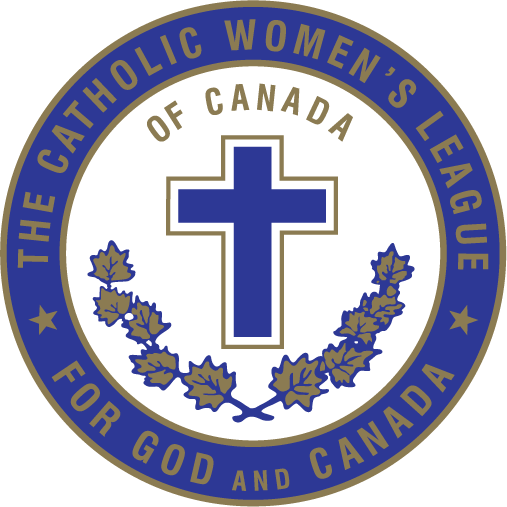Gisela Montague
B.C. & Yukon Provincial President
- One hundred and three of 126 councils reported.
- One hundred per cent of diocesan councils reported.
Informing Members
Sources of information reported most frequently were The Canadian League (85%), followed closely by national and provincial communiqués and websites. Though the survey did not offer the diocesan level as an option for obtaining information, it was the medium diocesan presidents used regularly to not only share information from national and provincial levels but also to provide specific action items. Parish bulletins and conventions were also used.
National Priorities
National priorities most acted upon were: opposing medical assistance in dying and the Canada Summer Jobs Program attestation; protecting rights of the pre-born under the United Nations Convention of the Rights of the Child; and promoting Care for Our Common Home, standards for labelling of products deemed flushable and the United Nations Treaty on the Prohibition of Nuclear Weapons.
These topics were discussed at meetings and explained in newsletters. Parish councils engaged standing committee chairpersons, and letters were written to government officials expressing concerns. Approximately 40% of parish councils arranged to have speakers at meetings.
Communication with Spiritual Advisors
Almost all parish councils reported the spiritual advisor was supportive; however, only 45% attended monthly meetings. Other duties in and outside of the parish kept spiritual advisors from meetings. Very few parish councils stated the spiritual advisor was not supportive of the League. Cultural differences were noted in some parish councils as a reason for spiritual advisors not fully understanding the League’s role.
Council Policy & Procedure Manual
Most parish councils had a local policy and procedure manual and found it beneficial to have one, but did not use it all the time. Some parish councils without a manual reported they would like to have one and would need help to develop one. One diocesan president made it a priority to create a manual once she becomes past president. Another diocesan president reported planning a workshop, and at one diocesan meeting, a video was produced and forwarded to parish presidents.
Foster Open Communication
Parish presidents provided an annual summary of activities to all members. Parish councils communicated via e-mail, oral reports, written reports and newsletters. Some diocesan presidents reported dealing with tension in parish councils, caused by personality conflicts and conflicts between new and former executives. A need existed for open, proactive communication between pastoral councils and the corresponding parish council. One diocesan president was curious to see how parish councils get input from members to formulate annual plans and projects.
Resources Used at Meetings
The following resources were used: Constitution & Bylaws, Executive Handbook, council policy and procedure manuals, Robert’s Rules of Order, National Manual of Policy and Procedure and Leading the League.
Promote Active Leadership in Councils
Most parish councils had a president, and in one diocese, 72% had held the position before. In another diocese, five parish presidents stepped down but let their names continue to be used. Some parish councils challenged members to step up to the executive level and standing committees. One parish council developed a flyer with the title, “Do You Want to Make a Difference?” Another parish president remarked on the change in members’ confidence and ability when they took on an executive position. Parish councils were encouraged to apply for the leadership fund. Diocesan and provincial leadership funds and the National Development Fund were used by parish councils. Attending conventions was promoted by incentives at the diocesan and provincial level and were well used. Not all delegates to conventions and meetings were fully subsidized by parish councils, and such subsidization should be more encouraged. One diocesan president reported 61% of parish presidents had been members for 15 years or less. Most parish councils had received The League of the Future—Year 1 presentation on the update of the strategic plan.
Assistance when Assuming President
Parish presidents reported the immediate past president was the most relied upon resource. More assistance came from past presidents, the current executive and life members.
Greatest Challenges in Transitioning to President
The most significant challenge for parish presidents was keeping members interested and having to rely on fewer people to do the job. Feeling overwhelmed, filling executive roles, amount of paperwork and e-mails, resistance to new ideas, meeting expectations, feeling undertrained, finding time, member criticism, public speaking, lack of confidence, resistance to new ideas, technology, delegation and dealing with personality conflicts were other challenges in transitioning to president. New members with young families were unable to attend or participate and one parish president stated that women find when they join the League “they get another job.” One diocesan president reported focusing on all the goals and issues the League is involved in as a challenge encountered. Many councils did not have the president-elect position filled.
National Theme
Most presidents found it beneficial to have a national theme and agreed with the change in theme with each national president.
What Makes You Most Proud of Your Council?
Teamwork, how much was accomplished with such few members, being a welcoming parish council, support, energy, enthusiasm and involvement of active members who comprised one-third of members, participation in conventions, spiritual programs and fellowship within the church were sources of pride for parish presidents. Overwhelmingly consistent comments included—members worked well together, were supportive of each other, had great love, were determined, were proud of the achievements, and were prayerful, considerate and respectful. Members worked as teams and were particularly active in special events. One parish president was thankful for having a life member who wrote important resolutions and brought great information to meetings.
One diocesan council focused on faith, service and social justice and changed the format of the two interim meetings from reports to workshops, including “Opening Doors to Social Justice”, “Communication our Service and our Future”, “Our Faith-Built on Solid Rock” and “Mentoring Wisdom-The Art of Servant Leadership”. Another diocesan council accomplishment was hosting the provincial convention and establishing a new parish council. A special travel fund was developed by one parish council for the annual national convention in Montreal, Quebec.
Comments/Suggestions
One diocesan president suggested having an online calendar or project management software so that every member could log in, see what has happened, track the progress and become involved. Managerial and project applications existed that would keep a record of all that was done. It would be good to have one that could be used throughout all levels, rather than continually training people on ever-changing technology.
Another diocesan president reported speaking for almost all parish councils that they were hanging on in the hopes that the future changes in the League would give them new life. One parish council reported starting a “Do you know” section in the parish bulletin with tidbits, sometimes as simple as an explanation of the colours of the League crest. To simplify paperwork, one parish council used a whiteboard agenda, had simplified reports and encouraged the use of websites. Another parish council used job sharing on committees and built teams to work on special events. One parish council suggested diocesan councils send out annual report surveys using hyperlinks. One diocesan president instituted a “Questions/Comments” box at meetings for members to have the option of asking questions anonymously. This resulted in some procedural changes and ideas for future workshops and programs.
Provincial President’s Activities
My second year as provincial president was as busy as the first year. I attended my parish council meetings as well as four Vancouver diocesan council meetings. I brought greetings from the provincial council to the Vancouver Diocese’s sisters’ appreciation dinner and St. Luke (Maple Ridge) Parish Council’s 75th anniversary where I presented an anniversary certificate. I prepared and chaired the provincial spring meeting at St. Nicholas (Langley) Parish and, in September, presented a workshop on “Communiqués” to the newly elected executive of the Vancouver Diocesan Council.
I attended the LifeCanada Gala where Raymond Arroyo from Eternal World Television Network was the guest speaker, and participated in the spring and fall national executive/board meetings. I enjoyed being a member of the board. One highlight was the annual national convention in Calgary, Alberta, where I represented the provincial council.
B.C. & Yukon Chairperson of Resolutions Sharon Ciebin organized a panel of speakers who gave a presentation on human trafficking. As I was attending Prince George and the Nelson diocesan conventions, B.C. & Yukon First Vice-President and Chairperson of Spiritual Development Catherine L’Heureux represented me at the Knights of Columbus’ annual general meeting and state convention.
I read the proposed resolutions to the provincial convention. Many e-mails flew back and forth in preparation for the convention in beautiful Nanaimo. Victoria President Christa Grillmair and her team hosted a successful gathering at the Coast Bastion Hotel, right by the ocean. Bishop Gary Gordon (Victoria) was instrumental in organizing a panel of First Nations people as keynote speakers. The opening mass was drummed in followed by the Creed spoken in their native language. Other speakers included Amber Zolc, a consultant from Catholic Christian Outreach on the provincial theme, Witnessing to the Truth, and Alissa Golob, co-founder of RightNow on “How to Elect Pro-life Politicians”. Anna Hudson, an elder abuse facilitator for Saanich Peninsula Community Response Network, spoke on “Elder Abuse” by family and friends, how to recognize it, and she shared recommendations for providing support. Sharon Ciebin presented the “Strategic Plan for the Future of the League” and B.C. & Yukon Spiritual Advisor Fr. David John enlightened all with an unexpected conversion story beautifully presented, as only he can do. A well-decorated beach party was enjoyed on Friday evening with the Glen Foster Group.
The provincial fall executive meeting was held in October in Kelowna and included watching the film, Unplanned. The provincial council was asked to host the annual national convention in 2022, three years earlier than planned, and Kelowna was chosen as the host city. Bishop Gregory Bittman (Nelson) sent an invitation letter to National Spiritual Advisor Bishop Stephen Jensen (Prince George), and a planning committee was formed.


